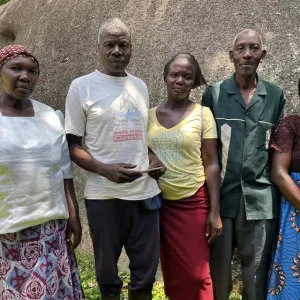Why are Kenyan farmers embracing nature and biodiversity?
LYANAGINGA VILLAGE OF VIGULU, Kenya – First-time visitors to this small community in Vihiga County are usually marveled by how the farming community works the hilly landscape. Tree-lined trails wind around massive boulders, connecting one tiny plot – about 0.16 hectares on average – and farmers’ homes. The setting, including tiny vegetable gardens set atop the boulders, sharply contrasts with

Why are Kenyan farmers embracing nature and biodiversity?
LYANAGINGA VILLAGE OF VIGULU, Kenya – First-time visitors to this small community in Vihiga County are usually marveled by how the farming community works the hilly landscape. Tree-lined trails wind around massive boulders, connecting one tiny plot – about 0.16 hectares on average – and farmers’ homes.
The setting, including tiny vegetable gardens set atop the boulders, sharply contrasts with much of the nearby agricultural landscape of mostly treeless monocropping farms on highly degraded soils. Much agricultural land is abandoned because of the high costs of industrial seeds and chemicals now needed to coax a few calories from the exhausted earth.
Vigulu farmer Nicholas Adalo Ambaja and 50 neighbors recently joined an initiative to restore their land’s health and productivity with local agrobiodiversity. The farmers created a demonstration permaculture farm to learn about and replicate several nature-positive activities on their nearby farms. They grow many once-abandoned local crops and trees and improve practices to prevent erosion and to improve natural soil fertility.

